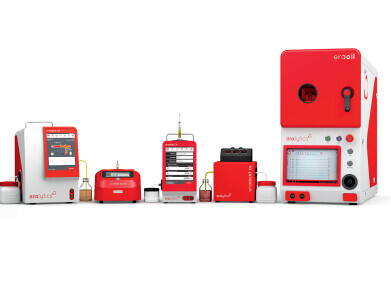Analytical Instrumentation
Tanzania & Uganda Agree to 900 Mile Pipeline
Oct 21 2020
In an exciting leap forward for the African oil and gas industry, Uganda and Tanzania have signed a new pipeline deal worth a cool US$3.5 billion. The project will see a 1445-kilometre-long crude oil pipeline constructed between the oil fields of Uganda and the industrial port of Tanga in Tanzania. To mark the occasion an official signing ceremony was held in Tanzania, with the presidents of both countries in attendance.
A huge boost for East African economies
While a start date for the project has not yet been confirmed, the pipeline is expected to be the largest in East Africa once completed. It will drastically boost the oil and gas industries of both countries, with Tanzanian government spokesman Hassan Abassi predicting the project will create more than 18,000 jobs over the next 25 years. The pipeline is also set to generate around US$3.24 billion for the Tanzanian economy.
Oil reserves were first discovered in Uganda in 2006, however lack of infrastructure and transport solutions has prevented the country from moving forward with extraction. Now, French oil company Total and the China National Offshore Oil Corporation (CNOOC) are working together with the Ugandan and Tanzanian governments to spearhead the project and kickstart the industry. Engineers predict the pipeline will take around two to three years to complete. At full capacity it will transport a huge 230,000 barrels per day from Ugandan oil fields to Tanga.
Human rights and ecosystems at risk, warn activist groups
In spite of promises of thousands of jobs and billions in profits, human rights groups are warning the project could have devastating implications for local communities. A joint report by Oxfam and the International Federation for Human Rights (FIDH) cautions the livelihoods and land of more than 12,000 families is at risk. Conservation groups also warn drilling in Uganda could damage sensitive ecosystems and nature reserves. The 1445-kilometre-long pipeline also comes with the ongoing risk of leaks and spills.
“Despite promises about jobs and a better future, communities are worried about lost land, a damaged environment, and the ‘empty promises’ of oil money,” says Caroline Brodeur, Business and Human Rights Advisor for Oxfam. “The risks posed by further oil exploitation in East Africa are immense. We urge companies and governments to review these newly-released findings, which reflect the fears, hopes, and recommendations of communities around the Lake Albert oil projects and ‘down the line,’ and commit to a different path forward.”
From pipelines to refineries, improving efficiency is always front of mind for oil producers. Find out more about how SCION Instruments SIMDIST analysers are reinventing conventional distillation methods in ‘Getting Better Value from Petroleum Products using Simulated Distillation Gas Chromatography.’
Digital Edition
PIN 25.1 Feb/March
March 2024
In This Edition Safety - The technology behind the ION Science Tiger XT - Safety with ammonia and LOHCs as hydrogen carriers Analytical Instrumentation - Discussion on new tribology te...
View all digital editions
Events
Apr 28 2024 Montreal, Quebec, Canada
Apr 30 2024 Birmingham, UK
May 03 2024 Seoul, South Korea
May 05 2024 Seville, Spain
May 06 2024 Riyadh, Saudi Arabia


















